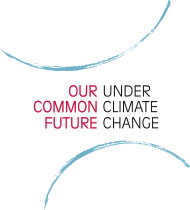Given the complex international situation, strategies to tackle energy-related issues need effective normative tools to deal with the different types of constraint (e.g. climate-related, financial, legal, political, technical). Various scenarios are now available to provide an insight into the challenges of energy transition under environmental constraint. However, the regional, technological and social conditions that trigger this transition require developing tools to identify the policy mixes needed for new directions in technical systems and modes of development.In particular, the aim is to reconcile and connect different scales (temporal,spatial, social) in order to understand:
- The political implications that necessarily take place at several levels, from global to local,
- The impact of phenomena with different dynamics (several decades versus seconds), and
- The central role of people (for whom the future must be acceptable and desirable, i.e. compatible with aspirations and behavior).
This multi-scale integration brings up significant methodological obstacles that we propose to examine in three sessions. During the events, international scientists involved in the strategy of major groups and academic organizations will present the reconciliation of long-term approaches employed in prospective exercises at different scales:
1.
Short-term/long-term temporal scales (Schneider Electric, IEA, MINES ParisTech): reconciliation involves examining the �inertia� of systems, e.g.urbanization or the composition of current mixes, versus the �instantaneousness� of usage (e.g. mobility using electric vehicles or smart grid solutions, energy efficiency) as well as the technical conditions for operating systems (i.e. network reliability, availability and stability);
2.
Spatial scales (University of Berkeley, MINES ParisTech, IER Stuttgart):different levels of spatial issues will be tackled such as top-down versus bottom-up pledges for emerging countries, centralized versus decentralized networks, managing intermittent electricity production sources and integration into the network;
3.
Societal scales (EDF, MINES ParisTech, Cambridge University) this will involve discussing the assessment of different development paradigms (degrowth/growth) and the integration of behavior as relevant modeling characteristics.




